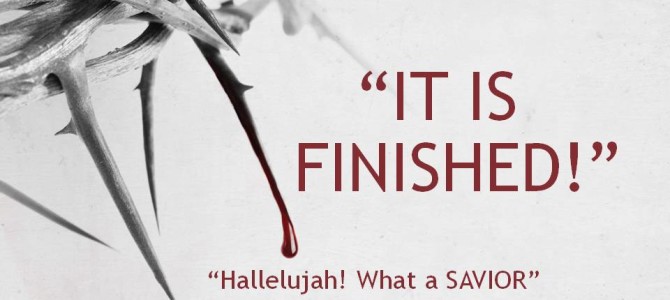Understanding the “WHO” Question – “Embracing more of ‘Who’ God is”
“It is in our acceptance of what is given [whatever that may be], that God gives Himself.”
This quote comes from her book, “These Strange Ashes,” where Elisabeth Elliot writes,
“Faith’s most severe tests come not when we see nothing, but when we see a stunning array of evidence that seems to prove our faith vain. If God were God, if He were omnipotent, if He had cared, would this have happened? Is this that I face now … the reward of my obedience? One turns in disbelief again from the circumstances and looks into the abyss. But in the abyss there is only blackness, no glimmer of light, no answering echo …. It was a long time before I came to the realization that it is in our acceptance of what is given [whatever that may be], that God gives Himself. This grief, this sorrow, this total loss that empties my hands and breaks my heart, I may, if I will, accept, and by accepting it, I find in my hands something to offer. And so I give it back to Him, who in mysterious exchange gives Himself to me.”
As I read these words, I am struck by her raw transparency as she struggles to reconcile Who God is with the reality of the pain of her suffering. God giving Himself to us in the trial speaks of His attitude toward His children, as He reveals more of Who He is. The truths of God bring great comfort in the trial, when we learn to embrace Who He is.
How will my attitude toward my trial change when I embrace the truth that God gives Himself? What changes in my mind when I embrace this truth? How will my response to my trial change when my focus shifts from off my pain to the Person in control of the process?
The shifting of our perspective from off the painful process to the Person Who is providentially seeking to bring about His loving purpose results in worship. In part 3, we considered God’s character—“what God is like” and “what God knows is best.” We considered Paul and his response to God’s negative answer to his prayer. His response is one of surrender as he embraces the trial in worship. The reason? He knew and trusted his loving, heavenly Father.
“The best is not the question ‘Why?’ but better yet, just ‘Who?’
For when you see Me, Who I am, you will surrender too.”
The night that Jesus was betrayed and arrested, He tenderly taught His disciples, seeking to prepare them for His departure, which was their greatest trial up to this point in their lives. Over and over He teaches them life-changing, stabilizing truths about His Father.
In John 15 we see a comforting word picture of the purging process. It illustrates for us both the purpose and the process of trials, but it also shows us the Person orchestrating the process for His good purpose. Take a few moments and read through these verses noting the Father and Son, as I have highlighted them to draw our attention.
“I am the true vine, and My Father is the husbandman. Every branch in Me that beareth not fruit He taketh away: and every branch that beareth fruit, He purgeth it, that it may bring forth more fruit. Now ye are clean through the word which I have spoken unto you. Abide in Me, and I in you. As the branch cannot bear fruit of itself, except it abide in the vine; no more can ye, except ye abide in Me. I am the vine, ye are the branches: He that abideth in Me, and I in him, the same bringeth forth much fruit: for without Me ye can do nothing.”—John 15:1-5
Amongst the many stabilizing truths in the passage, two great truths stand out, bringing great encouragement. In this passage Christ speaks of the loving relationships between the Husbandman and the Vine and the Vine and the branches.
The first, in illustration form, is that God is a vinedresser lovingly pruning His vine branches. What I find so encouraging about this word picture is the attitude of God the Father, the husbandman, going about pruning His branches. Picture in your mind a vinedresser coming alongside each vine with his pruning shears as he gets in close to the vine. He is very deliberate and methodical about where he cuts. He desires to maximize the fruit-bearing potential and quality of each branch so he cuts off only what is necessary—he applies only necessary pain to the branch. In this we see the careful attention the Husbandman gives as He wraps His loving arms around the Vine and prunes each branch—like a loving father embracing his child. The truth is that God is never closer to you than He is in the trial. This realization warms my heart and encourages me to press on.
The second great truth is Christ’s desire for union and communion with His branches. Through this purging process Christ, the Vine, is ever present and calls for us to “abide in Him,” ever seeking to draw us into closer, more intimate fellowship of dependency. From these words we see God’s attitude of love pouring forth like an unending fountain.
Consider what the Bible says about God’s love: “In this was manifested the love of God toward us, because that God sent His only begotten Son into the world, that we might live through Him” (1 John 4:9). “But God commendeth [proved] His love toward us, in that, while we were yet sinners, Christ died for us” (Romans 5:8). This is the heart of our God in every action He takes—He is the unchanging, loving God.
In the book of Jeremiah, God speaks of the 70 years of judgment, in Babylon, that the nation of Israel will suffer through. He then reassures and reminds them of Who He is. “For I know the thoughts that I think toward you,” saith the LORD, “thoughts of peace, and not of evil, to give you an expected [desired] end” (Jeremiah 29:11). He is saying, “Remember Who I am! I Love you, and desire peace for you and not evil. I desire a good and purposeful end to this process. Trust Me, I love You!”
A few chapters later Jeremiah writes, “The LORD hath appeared of old unto me, saying, ‘Yea, I have loved thee with an everlasting love: therefore with lovingkindness have I drawn thee [He lovingly encourages His people into a closer relationship with Him]’” (Jeremiah 31:3). God reminds His servant that His painful actions toward His people are rooted in a love that will never end. It is with this love that He draws His people closer to Himself through the trials of life.
A second word picture has been helpful for me as I consider God’s praiseworthy purpose. Paul writes, “For we are His workmanship [masterpiece], created in Christ Jesus unto good works, which God hath before ordained that we should walk in them” (Ephesians 2:10).
I find it helpful to keep in mind that God is a master sculptor skillfully sculpting His masterpiece. A.W. Tozer wrote,
“It is doubtful whether God can bless a man greatly until He has hurt him deeply. If God sets out to make you an unusual Christian He is not likely to be as gentle as He is usually pictured by the popular teachers. A marble sculptor does not use a manicure set to reduce the rude, unshapely marble to a thing of beauty. The saw, the hammer and the chisel are cruel tools, but without them the rough stone must remain forever formless and unbeautiful.”
This illustration pictures for us the process that is necessary to fulfill God’s praiseworthy purpose. It is a painful process but never forget that it is always with purpose from the hand of a loving God. Remember, “God never wastes the sufferings of His saints” (Warren Wiersbe). It is always for a good purpose.
Just as a master sculptor takes the necessary time to complete his masterpiece, so too, God the greatest, all-wise Master Sculptor takes only the necessary time, and necessary cuts to bring His masterpiece to completion. Remember the end goal for this painful process, “And we know that all things work together for good to them that love God, to them who are the called according to His purpose […] to be conformed to the image of His Son” (Romans 8:28-29).
Let’s keep in mind that God’s masterpiece will only be fully completed once we see our Savior face to face, “Beloved, now are we the sons of God, and it doth not yet appear what we shall be: but we know that, when He shall appear, we shall be like Him; for we shall see Him as He is” (1 John 3:2), “Being confident of this very thing, that He which hath begun a good work in you will perform it until the day of Jesus Christ:” (Philippians 1:6). Until that time, God is seeking to sculpt us into the image of His Son, day by day, trial by trial.
“So, embrace the trial, My dear child, My best is what you’ll see,
Beyond the suffering you feel, My Son they soon shall see.”










